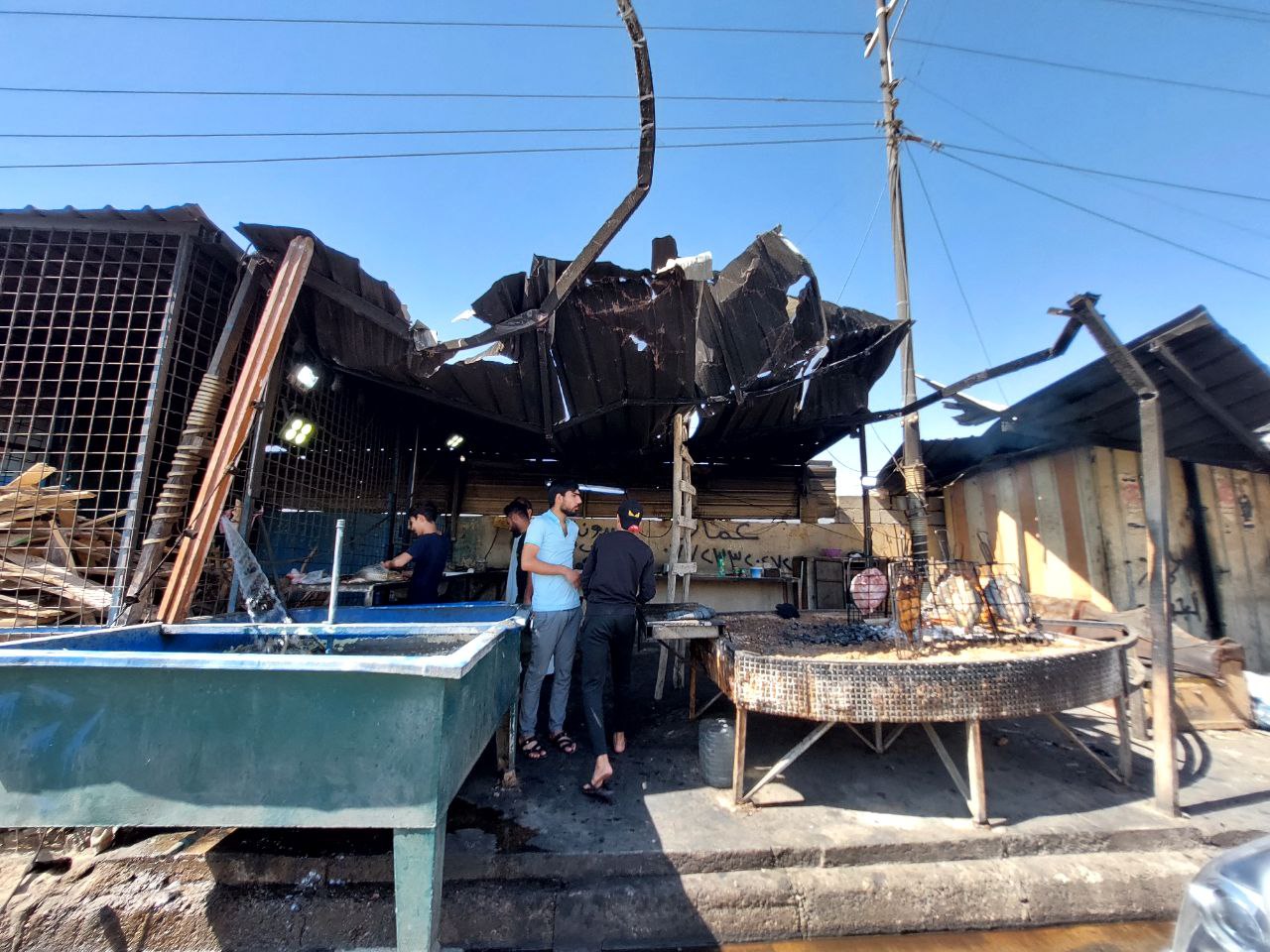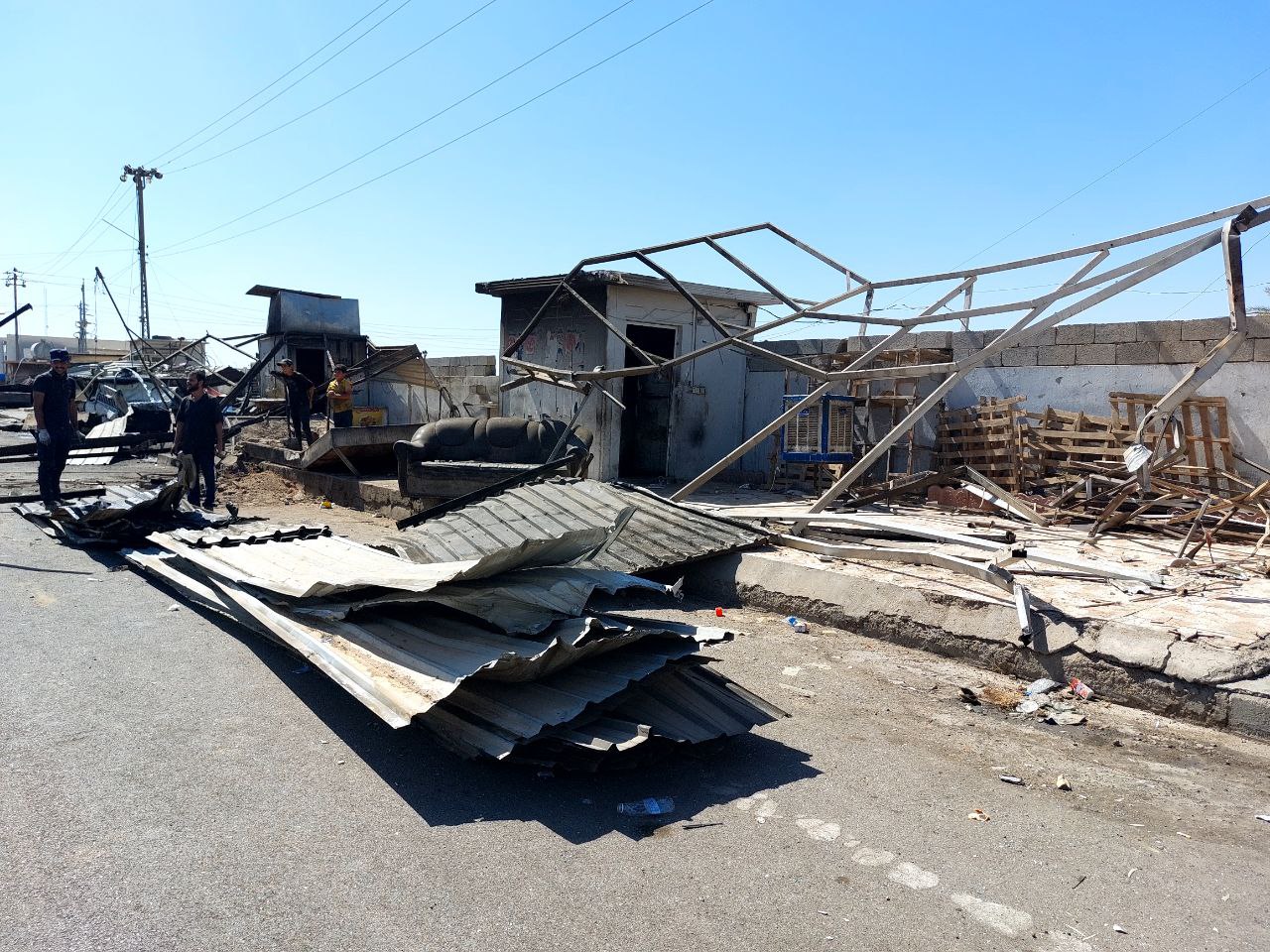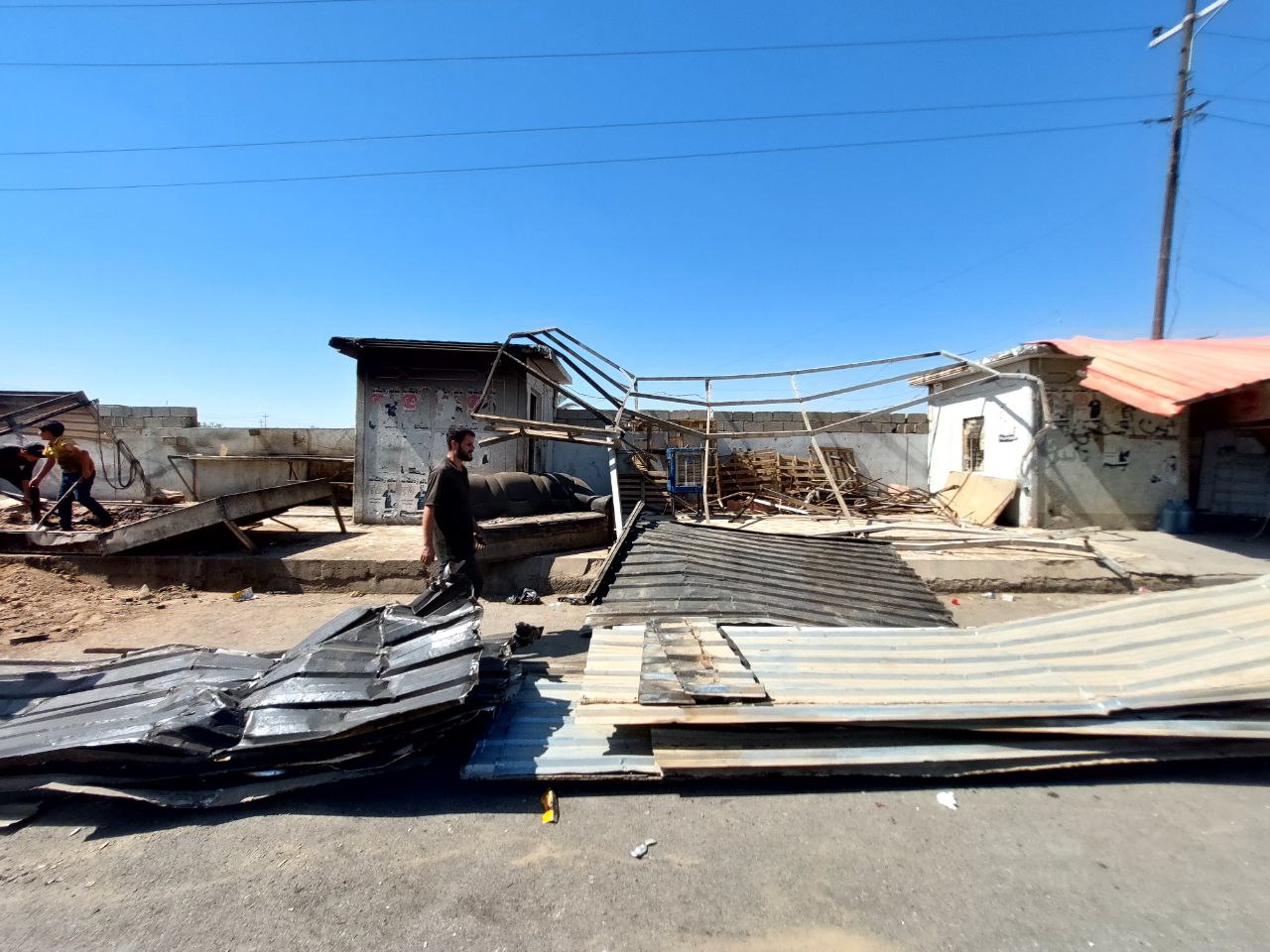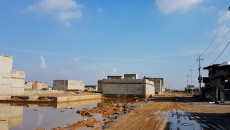The local authorities of Kirkuk are demolishing about 50 kiosks and shops in the city center on the grounds of being excessive and illegally expanded, while traders say they have contracts with the government and have not been notified to evacuate in advance.
According to KirkukNow reporter, a joint team of Kirkuk central district and the municipality demolished the kiosks of traders and some of the shops on Hisabat Street in a campaign.
Rauf Hassan, a shopkeeper in Kirkuk's Hisabat Street, told KirkukNow when the team arrived to demolish their shops, they showed them their work contracts and rent of these places more than once, but to no avail and their shops were demolished.
He, who sells watermelon, said each shopkeeper and trader on the street suffered a loss of two to four million Iraqi dinars IQD ($2,700).
There are more than 60,000 houses and commercial buildings were built illegally in Kirkuk province, which ranks third after Baghdad where more than 130,000 units were built illegally, followed by Basra with 90,000 units, according to an official statistic obtained by KirukNow from the mayor of Kirkuk.
Following fall of Saddam regime in 2003, thousands of people expelled from Kirkuk and disputed territories, mainly Kurds and Turkmens, have received plots of lands or green light from the political parties ruling the region without being officially registered or permitted by local and federal authorities.

According to a number of street vendors, they have contracts with the Kirkuk administration to work and rent their places for three years, the rent of each place is between one million to four million dinars per year, most of their contracts are valid up to 2023.
"It is true that they have contracts, but they have exceeded the area, because each shopkeeper was previously allowed to put his goods within three meters, but now the shop and workplace is six meters," said Faraidoun Adel, director of Kirkuk Municipality.
Most of the shopkeepers and Kiosks on Hisabat Street sell fish and some have fruits and vegetables.
The director of the municipality said that the presence of excess in the street will distort the image of the city.
"We have many complaints from citizens about tidiness and the image of the city, so according to their contracts, their use of streets is limited. Besides, we assist the mayoralty which leads the campaign.”

Lately, a campaign to demolish a number of houses built over public lands overtaken by locals caused a rift between two of the most powerful Arab and Turkmen parties in Kirkuk, amid the exchange of accusations of being involved in "corruption, demographic change and the exploitation of positions for illegal acts."
After 2003 and the fall of the Baath regime headed by Saddam Hussein, thousands of houses were built on state-owned lands yet without official permission in all of Iraq's provinces, including Kirkuk.
Following fall of Saddam regime in 2003, thousands of people expelled from Kirkuk and disputed territories, mainly Kurds and Turkmens, have received plots of lands or green light from the political parties ruling the region without being officially registered or permitted by local and federal authorities.
Kirkuk administration provided basic services to some of the blocs but later it was stopped by Iraqi government. The local authorities gave notice of evacuation to the residents whom declined to leave unless compensated.
The northern oil-rich city of Kirkuk, 238 kilometers north of Baghdad, is an ethnically mixed province for 1.7 million Kurds, Sunni and Shiite Arabs, and Turkmens. It has long been at the center of disputed territories between Baghdad and Erbil.






